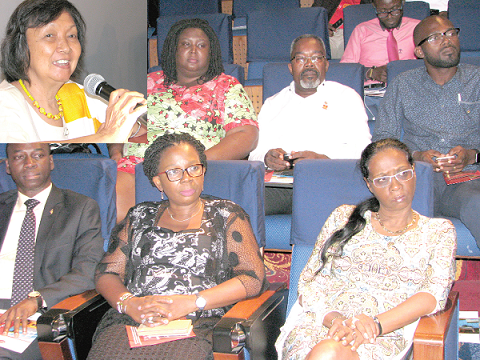
Ghana achieves 90 per cent polio vaccination coverage
Ghana has achieved 90 per cent coverage of vaccination against polio, the Chairman of the Ghana Health Service (GHS) Council, Dr Yao Yeboah, has announced.
Speaking at a symposium to mark World Polio Day in Accra last Tuesday, Dr Yeboah said Ghana had made remarkable gains in reaching every child with polio vaccination.
He said support from health partners had, over the years, also contributed to Ghana’s achievement on polio eradication.
Polio, also known as poliomyelitis and infantile paralysis, is a highly contagious viral infection that can lead to paralysis, breathing problems or even death.
Dr Yeboah said since 2008, no wild polio virus had been detected in the country.
Advertisement
“No deaths from measles have also occurred since 2003. Neonatal tetanus has been eliminated in Ghana since 2011 and meningitis from Neisseria meningitis A has also been eliminated with the introduction of the meningitis vaccine,” he said.
He added that all those improvements had contributed to the reduction in under-five mortality in Ghana from 111 per 1,000 live births in 2003 to 60 per 1,000 live births in 2014, adding that that was according to the Ghana Demographic and Health survey over years.
Challenges
Dr Yeboah said, however, that the intensity and number of polio eradication activities had, on some occasions, led to health worker fatigue.
He talked about repeated National Immunisation Day (NID) campaigns and the fact that some of the NID programmes were often organised at short intervals.
He suggested the proper documentation and sharing of lessons on polio eradication programmes and child survival interventions.
“These lessons will be invaluable in their application to similar strategies to tackle measles and rubella in much the same way that the global community used the legacy of the eradication of smallpox to establish the expanded programme on immunisation in 1974,” he added.
Community radio
The Coordinator for the Ghana Community Radio Network, Mrs Wilna Quarmyne, identified the power of community radio as a tool for the eradication of polio.
“Every last child will be vaccinated if the supply side works perfectly. Otherwise, the demand side has to be upped. Community radio works to deepen the demand side and connects it to the supply side,” she said.
She said community health nurses in the Kwahu Afram Plains South area had complained that most of the communities were very far and hard to reach during the rainy season and, therefore, getting the materials to those communities was a problem.
Besides, she said, the nurses complained that parents sent their children to the farm during mass vaccination times.
Mrs Quarmyne added that most mothers delivered at home and were seen by health workers mostly a month later, hence missing the administration of polio vaccines to the babies.
“This means that even as the GHS and its partners continue to work on improving the supply side, the demand side also needs to be strengthened. The power of community radio needs to be unleashed,” she added.
